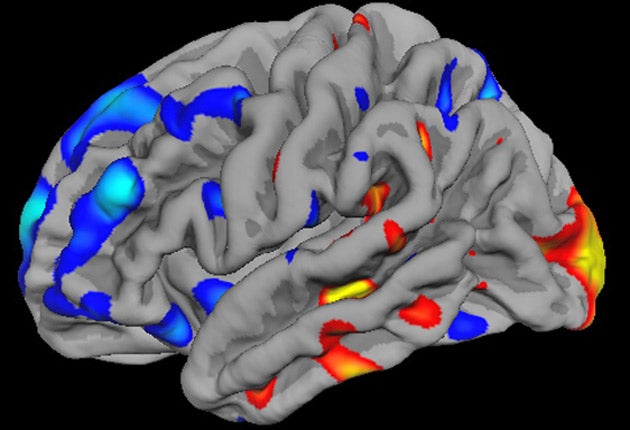Autism 'caused by genetics', study suggests
Medical Research Council study examined 516 twins

Your support helps us to tell the story
From reproductive rights to climate change to Big Tech, The Independent is on the ground when the story is developing. Whether it's investigating the financials of Elon Musk's pro-Trump PAC or producing our latest documentary, 'The A Word', which shines a light on the American women fighting for reproductive rights, we know how important it is to parse out the facts from the messaging.
At such a critical moment in US history, we need reporters on the ground. Your donation allows us to keep sending journalists to speak to both sides of the story.
The Independent is trusted by Americans across the entire political spectrum. And unlike many other quality news outlets, we choose not to lock Americans out of our reporting and analysis with paywalls. We believe quality journalism should be available to everyone, paid for by those who can afford it.
Your support makes all the difference.Autism is almost entirely genetic in origin, new research has suggested, with between 74 and 98 per cent of cases down to biological make-up.
A study conducted by the Medical Research Council looked at 516 twins, and found that rates of Autism Spectrum Disorder (ASD) were higher in identical twins who share the same DNA.
Lead author Beata Tick said: "Our main finding was that the heritability of ASD was high. These results further demonstrate the importance of genetic effects on ASD, despite the dramatic increase in prevalence of the disorder over the last 20 years.
But the researchers, who analysed data from the population-based Twins Early Development Study (Teds) - involving pairs of twins raised in the same household, by the same parents - said that they could not rule out the impact of environmental factors completely.
Co-author Professor Patrick Bolton said: "The comparison of identical and non-identical twins is a well-established way of clarifying the extent of genetic and environmental influences in autism.
"The novel aspect of this study was the inclusion of twins regardless of whether they had a clinical diagnosis. This enabled us to get a more accurate picture of how influential a child's environmental experiences and their genetic make-up is on ASD, as well as on subtler expressions of autistic skills and behaviours.
"Our findings add weight to the view that ASD represents the extreme manifestation of autistic skills and behaviours seen in the general population."
Read more: Measles outbreak: Andrew Wakefield didn’t cause the MMR panic without the help of journalists
Read more: I am not a scientist, but I am a mother — I know why my child has autism
Researcher Dr Francesca Happe said that higher rates of autism in recent years could be put down to more correct diagnoses. The disorder, a spectrum of conditions which vary widely from person to person, may have previously been classed as a learning disability, and not recognised as autism, the BBC reported.
"Our findings suggest environmental factors are smaller, which is important because some parents are concerned whether things like high pollution might be causing autism," she said.
"Some people think there might be a big environmental component because autism has become more common in recent years but that's happened too fast for genetics to be a probable cause.
"The main consensus now is that the rise in diagnosis has more to do with increased awareness of the condition."
According to the website Autism Speaks, environmental factors which could be linked to autism include prenatal exposure to toxins, such as the chemicals thalidomide and valproic acid.
Other risk factors appear to include influences such as parental age at conception, maternal nutrition, infection during pregnancy and prematurity.
Join our commenting forum
Join thought-provoking conversations, follow other Independent readers and see their replies
Comments